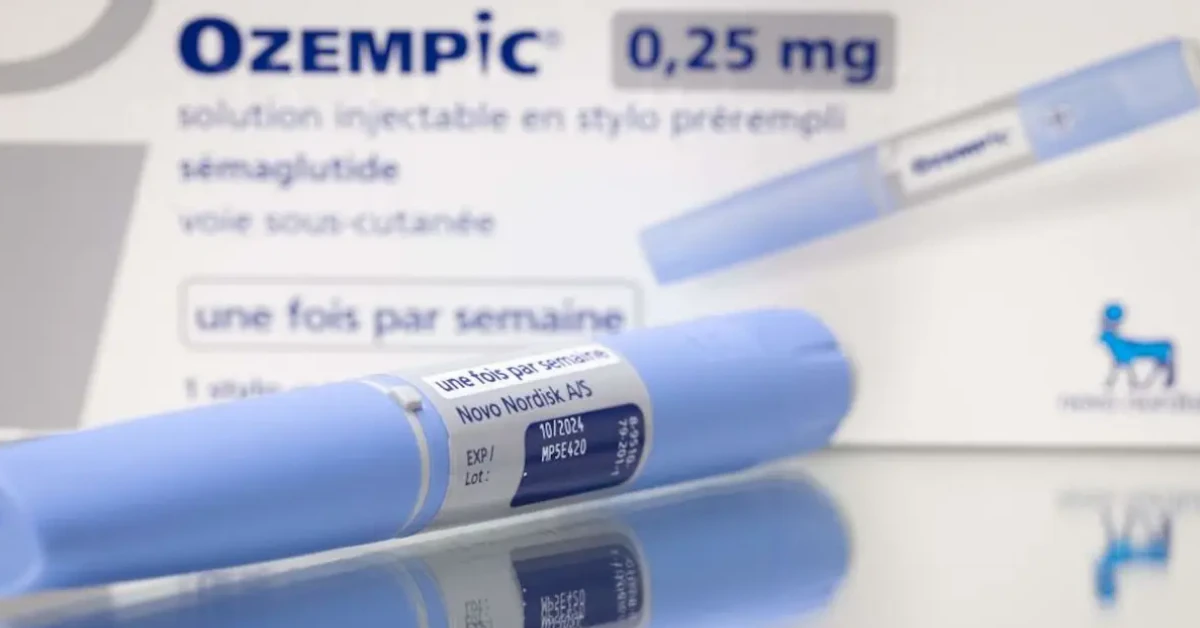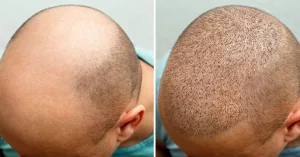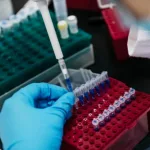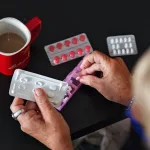Quick Answers
So you’ve heard rumors that Ozempic might help with more than just weight loss. If you’re middle-aged and dealing with low energy, a shrinking gym routine, or weight that won’t budge despite your efforts, here’s what matters: Some emerging research suggests that Ozempic (semaglutide) and related GLP-1 drugs could modestly improve testosterone levels in men with obesity or type 2 diabetes. No, this isn’t a “miracle injection.” But it might be a two-for-one deal: lose weight, and let your hormones rebalance naturally. Let’s unpack this.
Testosterone & Weight Loss
Does Ozempic Actually Raise Testosterone?
Here’s the real talk: Ozempic doesn’t directly pump up testosterone like a TRT injection would. But here’s the kicker—it might indirectly boost it through a chain reaction. Let’s break the study that turned heads:
- Researchers tracked 234 men on GLP-1 drugs like Ozempic, Wegovy, or Mounjaro.
- After 18 months, those with low baseline levels saw a jump from 312 ng/dL to 368 ng/dL.
- Free testosterone (the usable kind) ticked up slightly from 6.7 to 7.2 ng/dL.
Dr. Shellsea Portillo Canales, the lead researcher, summed it up best: “These increases occurred naturally as weight and insulin resistance improved—no artificial hormones needed.”
Who Gets the Biggest Boost?
If you’re not diabetic or not overweight, the data says this isn’t for you. The sweet spot? Men in their 50s with obesity (BMI >30) or pre-diabetes. Why? Here’s the inside scoop:
Obesity acts like a hormone saboteur. Excess fat, especially around the gut, messes with the brain-testicle communication highway. Insulin resistance? It’s like a rusty cog in the system. When Ozempic kicks in, it’s like greasing that wheel—you lose 10% of your bodyweight, your blood sugar stabilizes, and your T levels? They start climbing back up.
How GLP-1 Drugs Work
The Hormonal Domino Effect
Imagine your body as a finely tuned car engine. Obesity is like sludge in the system. Tackle the sludge with Ozempic, and suddenly, the engine revs smoother. Let’s get nerdy for a sec (don’t worry, we’ll keep it light):
- GLP-1 drugs slow stomach emptying → you feel full longer.
- Over 6–18 months, you drop 10–17% of your weight.
- With less fat, the body produces less estrogen (yea, even men make it!) → testosterone steps into the spotlight.
“It’s not magic,” says Dr. Susan Spratt from Duke University. “Obesity-related low T is reversible,” she told Healthline. But here’s the plot twist: The effect only holds if you keep the weight off.
GLP-1 vs. Bariatric Surgery
| Method | Testosterone Rise | Invasiveness |
|---|---|---|
| Bariatric Surgery | 20–30% | High (gut reconfiguration) |
| GLP-1 Drugs (Ozempic, Mounjaro) | 17–18% | Low (once-weekly injection) |
The surgery crowd often sees bigger hormonal rebounds, but GLP-1 medications are gaining traction as a “gentler” option. Dr. Fatima Cody Stanford at Mass General put it this way: “Men aren’t just shedding pounds—they’re regaining their spark.”
Risks to Watch
Mixing Ozempic & TRT: A Recipe for Trouble?
Hold up. If you’re injecting both Ozempic and testosterone replacement therapy (TRT), you might be playing with fire. Here’s why:
- Some men swear by this combo, claiming it’s a muscle-preserving, fat-zapping cheat code. But here’s the reality check: No major studies support this yet. “We’ve seen cases where self-dosing led to blood clots, gastritis, and even heart palpitations,” warns Dr. Jesse Mills (UCLA Men’s Clinic).
- TRT on its own? Not risk-free. According to Mayo Clinic, it could:
The catch? Once you stop Ozempic, the weight—and low T—might come back. “Think of it as a band-aid for hormonal balance,” says Dr. Sun Kim (Stanford). “If you quit taking it, you’re back at square one.”
When to Consider Ozempic
Obesity, Not Just “Low T”
Let’s clear up confusion: Not all men with low testosterone qualify. This only applies to those where weight and diabetes are the main culprits. If your low T is due to aging—or a rare pituitary issue? No dice.
How to tell the difference? Most men with hormone disruption from obesity have other clues:
- Increased belly fat
- Erectile dysfunction
- Low muscle tone
- Chronically sluggish energy
TRT vs. GLP-1: What Doctors Do
“My approach isn’t one-size-fits-all,” says Dr. James Staheli from Broad Health. “If a patient’s T is barely dipping into ‘low normal’ but their [A1c level] is sky-high, I prioritize weight loss first. For those with severe symptoms like bone density loss? TRT comes first, then we see if Ozempic supports long-term maintenance.”
Big Picture Realities
The Problem With DIY Ozempic
This story from Men’s Health broke my heart: A finance guy, let’s call him Bill, was mixing his own semaglutide powder and testosterone vials from sketchy online vendors. No doctor involved. Result? Nausea so intense he could barely eat. And the irony? His home-brewed semaglutide might’ve not been the real stuff at all.
Bottom line: Legitimate Ozempic needs a [prescription]. Compounded versions from med-spas or “peptide” sites? They’re the Wild West. Dr. Al Carter from NABP warns, “We’ve linked these unregulated products to sepsis and life-threatening pancreatitis before.” If you’re serious about this, skip YouTube hacks and work with an endocrinologist.
What if I’m a Healthy Guy?
Not all studies agree. One analysis of non-diabetic men on semaglutide found a marginal increase in low T risk (less than 1.5%). But here’s the loophole: Most researchers haven’t studied this in fit younger men without obesity. “For now, we can’t promise this effect,” says Dr. Beverly Tchang (Weill Cornell). “Let’s not go around treating age-related T decline like a disease—it’s part of life.”
Final Thoughts
So is Ozempic the new T-boosting bro? Not exactly. It’s more like collateral damage—a side effect that’s beneficial if you’re in the right group and monitored by your doctor. But there’s no getting around it: These meds aren’t without risks. The key is to treat this like building a house—you need expert blueprints.
Here’s my hot take: Weight loss isn’t just about looking good in a swimsuit. It’s about giving your body a chance to heal. And if your T bounces back? That’s just two more boxes checked on the journey to better health. But this isn’t a solo mission. Talk to your doctor. Get your labs done. And maybe—just maybe—lose the weight first before you reach for synthetic testosterone. What do you think? Drop your experiences in the comments below. And remember, your body tells a story. Ozempic or not, listening to it beats any TikTok hack.
Quick Recap
Let’s hit the bullet points:
- Ozempic may help men with low T caused by obesity/diabetes.
- Risks like gastric paralysis exist, especially with unregulated dosing.
- Combining GLP-1 with testosterone should be done only under medical supervision.
























Leave a Reply
You must be logged in to post a comment.